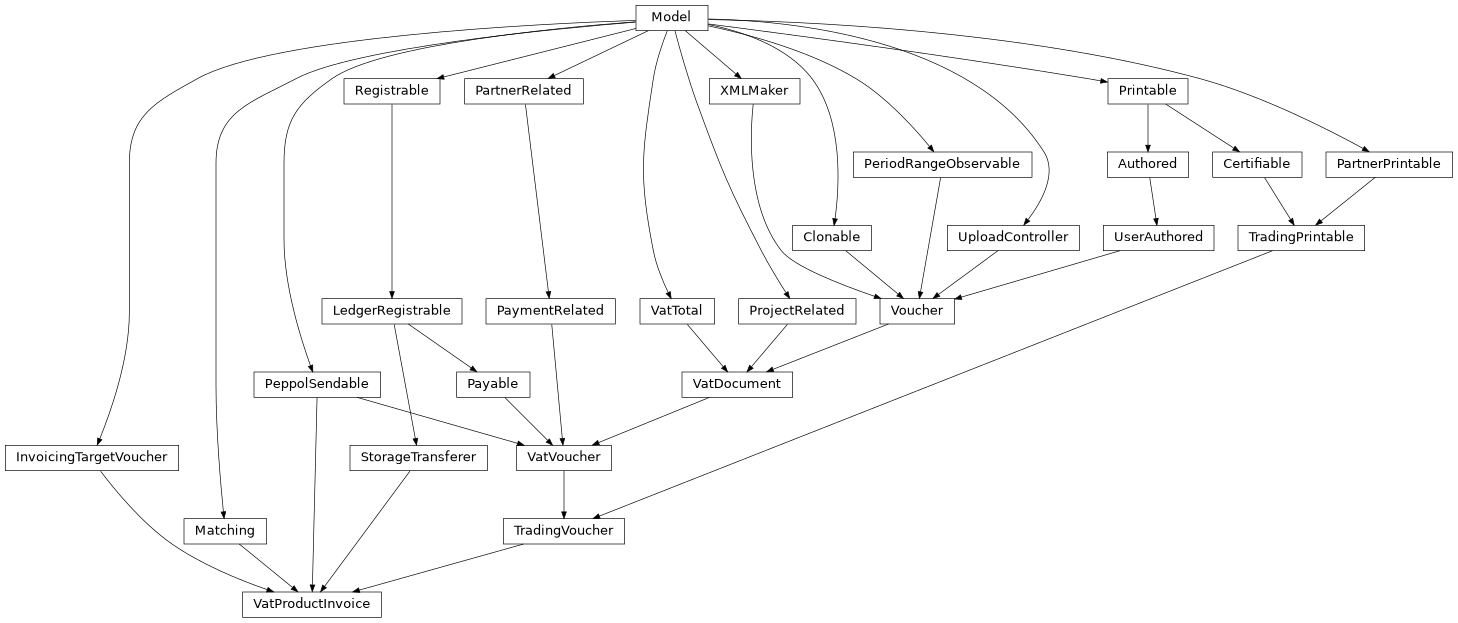Tuesday, January 28, 2020¶
Until today the state field of a voucher had one global choicelist for all
voucher types (lino_xl.lib.accounting.VoucherStates). This same list of
allowed voucher states was used for sales invoices, purchase invoices, bank
statements, vat declarations, all types of orders, and whatever type of voucher
we may imagine in the future. That was actually a design flaw because the
workflow of vouchers can potentially vary. For example the “signed” state isn’t
actually used by any of our applications. And more urgently, for the presto
project it now turns out that we need a customized workflow for orders. So I
decided to dive into this and fix it. Two days of work.
I considered the possibility to make Voucher abstract. But after some
experimenting I can confirm once more that this would be (1) not trivial and (2)
bad. Because a great fundamental feature is that Lino supports configurations
where sales invoices are stored as vat.AccountInvoice, or where
purchase invoices are stored as sales.VatProductInvoice.
Changes:
The state field of a voucher is no longer defined in the Voucher model (the MTI parent for all implementing voucher models) but in the implementing models themselves. This will cause some fun when migrating existing data (mostly rumma and weleup afaics). At the SQL level, the state field of a voucher is no longer stored in the ledger_voucher table but in sales_vatproductinvoice, finan_bankstatement etc.
When you implement a Registrable, you must define yourself a field named “state”, and that field must be a ChoiceListField on a choicelist that is a subclass of VoucherStates.
A Voucher is no longer Registrable. All implementing subclasses must declare themselves whether they also inherit from Registrable. At the moment they all do so, and I cannot imagine any useful case where we would want a voucher type that is not also registrable. But theoretically it is possible.
This change was a bit tricky because the inheritance for vouchers is complex.
For example here is inheritance diagram for VatProductInvoice:
I had a reproducible AttributeError “‘TableHandle’ object has no attribute ‘store’” and added a test in ext_renderer so that it gives a more useful exception messages. Same for when it has no attribute ‘grid_layout’”. And maybe more important: Actor._get_handle now logs the exception detail when setup_handle fails. That’s the traceback we have been looking for in #3172 and #1173. Maybe also 3178.
